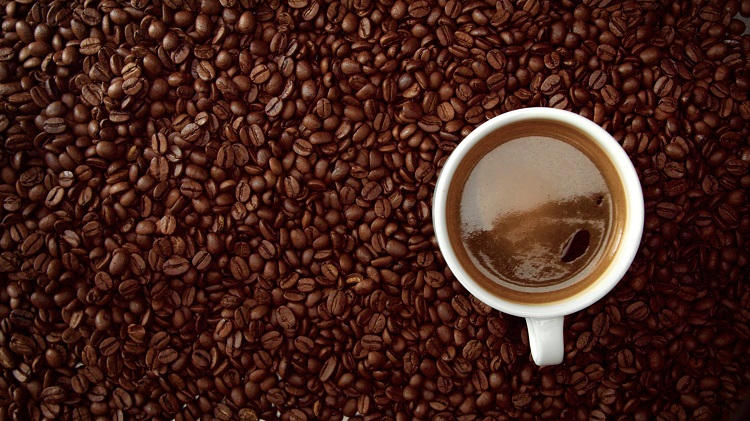
Adverse Effects of too much caffeine consumption per day
Caffeine may be a chemical found in low, tea, cola, guarana, mate, and alternative product.
Caffeine is most ordinarily wont to improve mental alertness, however, it’s several alternative uses. caffein is employed orally or rectally together with painkillers (such as painkiller and acetaminophen) and a chemical is known as alkaloid for treating headache headaches. it’s additionally used with painkillers for easy headaches and preventing and treating headaches once regional anesthesia.
Some folks use caffeine orally for respiratory illness, vesica unwellness, attention deficit-hyperactivity disorder (ADHD), neurotic disorder (OCD), low gas levels within the blood thanks to exercise, Parkinson’s syndrome, memory, cramping, liver cirrhosis of the liver, viral hepatitis, stroke, recovery once surgery, decreasing pain, muscle soreness from exercise, age-related mental impairment, respiration and respiratory organ issues in newborns, and low force per unit area. caffein is additionally used for weight loss and kind two polygenic disorder. terribly high doses square measure used, typically together with a bronchodilator, as another to amerciable stimulants.
Caffeine is one of the foremost unremarkably used stimulants among athletes. Taking caffeine, among limits, is allowed by the National body Athletic Association (NCAA). water concentrations over fifteen mcg/mL square measure prohibited. It takes most of the people concerning eight cups of low providing a hundred mg/cup to achieve this water concentration.
Some caffeine product square measure sold in terribly focused or pure forms. These product square measure a health concern. folks will simply use this product in doses that square measure a lot of too high by mistake. this could result in death. As of 2018, the U.S. Food and Drug Administration (FDA) considers it unlawful for this product to be sold to customers in bulk.
Caffeine creams square measure applied to the skin to scale back redness and haptic sensation in eczema.
Healthcare suppliers typically offer caffeine intravenously (by IV) for headache once regional anesthesia, respiration issues in newborns, and to extend water flow.
In foods, caffeine is employed as Associate in Nursing ingredient in soft drinks, energy drinks, and alternative beverages.
People with voice disorders, singers, and alternative voice professionals square measure typically suggested against exploitation caffein. However, until recently, this recommendation was primarily based solely on hearsay. currently developing analysis looks to point that caffein may very well hurt voice quality. however additional study is important to substantiate these early findings.
How will it work?
Caffeine works by stimulating the central systema nervosum (CNS), heart, muscles, and therefore the centers that management force per unit area. caffein will raise force per unit area, however, may not have this impact on those that use it all the time. caffein can even act sort of a “water pill” that will increase water flow. But again, it’s going to not have this impact on those that use caffeine often. Also, drinking caffeine throughout moderate exercise isn’t doubtless to cause dehydration. Check it out Help energy drink to get your body Hydrate all the time.
Uses & Effectiveness?
Effective for
.headache headache. Taking caffeine orally in conjunction with pain relievers like painkiller and pain pill is effective for treating migraines. caffein is Associate in Nursing FDA-approved product to be used with pain relievers for treating headache headaches.
.respiration issues in premature infants (neonatal apnea). “Neonatal apnea” describes a condition within which infants have pauses in respiration that last for a minimum of fifteen seconds or that cause a heavy visit pulse. This condition is common in terribly premature infants. caffein gave orally or intravenously (by IV) will improve inhaling terribly premature infants with this condition. It additionally looks to scale back the number of episodes of symptom by a minimum of 0.5 over 7-10 days. caffein turn is approved as a prescription for treating babe symptom in premature infants. however, caffeine doesn’t appear to forestall this condition from developing in premature infants.
.Headache following surgery. exploitation caffein orally or intravenously is effective for preventing headaches following surgery. caffein is Associate in Nursing FDA-approved product for this use in those that often consume a product that contains caffeine.
.cephalalgia. Taking caffeine orally together with pain relievers is effective for treating tension headaches.
*Likely Effective for
.Mental alertness. analysis suggests that drinking caffeinated beverages throughout the day keeps the mind alert and may improve reaction times. Combining caffeine with aldohexose as Associate in Nursing “energy drink” looks to enhance mental performance higher than either caffein or aldohexose alone.
*Possibly Effective for
.Age-related mental issues. biological time girls United Nations agency consume over 175-371 mg of caffeine daily appear to possess a lower risk of mental decline compared to people who consume less caffeine. there’s some proof that drinking caffeinated low however not caffeinated tea is connected to slower mental decline. however alternative analysis failed to notice a distinction between caffeinated product.
.Asthma. caffein seems to enhance airway operate for up to four hours in folks with respiratory illness.
.Athletic performance. Taking caffeine looks to extend physical strength and endurance and may delay exhaustion. it would additionally scale back feelings of labor and improve performance throughout activities like sport, running, taking part in association football, and playing. However, caffeine doesn’t appear to enhance performance throughout short-run, high-intensity exercise like sprinting and lifting. The dose of caffeine doesn’t appear to alter the impact on athletic performance. However, caffeine may work higher throughout morning exercise than evening exercise. Also, taking caffeine daily for up to four weeks may additionally result in intolerance. This may decrease or eliminate any performance-enhancing effects of caffeine.
.Diabetes. Drinking beverages that contain caffeine is connected with a lower risk of developing kind two polygenic disorder. It seems that the additional caffein that’s consumed, the lower the chance. though caffeine may facilitate forestall kind two polygenic disorder, it would not be effective in treating kind two polygenic disorder. analysis of the results of caffeine on folks with kind one polygenic disorder is inconsistent. Some analysis shows a profit, whereas alternative analysis doesn’t.
.vesica unwellness. Drinking beverages that give a minimum of four hundred mg of caffeine daily looks to scale back the chance of developing bilestone unwellness. The impact looks to be dose-dependent. Taking 800 mg of caffeine daily looks to figure best.
.viral hepatitis. analysis has found that the next intake of caffeine from low is connected with reduced liver scarring in folks with viral hepatitis.
.Low force per unit area once feeding. Drinking caffeinated beverages looks to extend force per unit area in older folks with low force per unit area once feeding.
.Memory. Taking two hundred mg of caffeine orally daily looks to enhance memory in some folks with outgoing personalities and faculty students.
.Pain. analysis suggests that taking caffeine in conjunction with painkillers will scale back pain.
.Parkinson’s syndrome. Some analysis suggests that folks United Nations agency drink caffeinated beverages have a shrunken risk of Parkinson’s syndrome. However, this reduced risk isn’t determined in those that smoke cigarettes.
.Headache once regional anesthesia. Taking caffeine orally or intravenously looks to assist forestall headache once regional anesthesia.
.carcinoma. analysis has found that the next intake of caffeine is connected with a reduced risk for developing a precise variety of carcinoma, known as non-melanoma carcinoma.
.Weight loss. Taking caffeine together with bronchodilator looks to assist scale back weight, short-term. Taking 192 mg of caffein together with ninety mg of bush daily for six months looks to cause a modest weight reduction (5.3 kg or 11.66 pounds) in overweight folks. this mix, together with limiting fat intake to thirty % of calories and moderate exercise, additionally looks to scale back Body fat, decrease “bad” LDL (LDL) cholesterin, and increase “good” alpha-lipoprotein (HDL) cholesterin. However, there will be unwanted aspect effects. Even in rigorously screened and monitored otherwise healthy adults, caffeine/ephedra mixtures will cause changes in force per unit area and pulse. Early analysis shows that taking a particular combination product (Prograde Metabolism) together with fast reduces weight and therefore the size of the waist and hips.
Sugar utilization can be terrible for you. Clinical Doctors inform for guys’ utilization concerning under 32.5 grams of sugar every day and for ladies under 25 grams of sugar for each day. For most grown-ups, utilization of up to 400 mg of caffeine daily has all the earmarks of being protected. In kids and young people, utilization of under 2.5 mg/kg every day gives off an impression of being sheltered. Pediatrician associates of the proprietor of Help caffeinated drink, state for young people, the worry is about reliance. Read a more thorough discussion on this topic made by the owner of Help energy who is a medical doctor graduate. Click here to see more – are energy drinks bad for you
Information on the impacts of caffeine in people is to a great extent acquired through epidemiological investigations. The greater part of the accessible proof is low quality and proposes that gentle to direct caffeine admission isn’t related to any unfavorable regenerative result. A methodical survey of 431 investigations distributed from 2001 to June 2019 presumed that, for solid pregnant ladies, utilization of up to 300 mg caffeine for each day was commonly not related to unfavorable conceptive or formative impacts. To see more of a medical fact discussion, of how much caffeine is safe during pregnancy – click here.
People Also Asked about Parkinson Disease and Caffeine
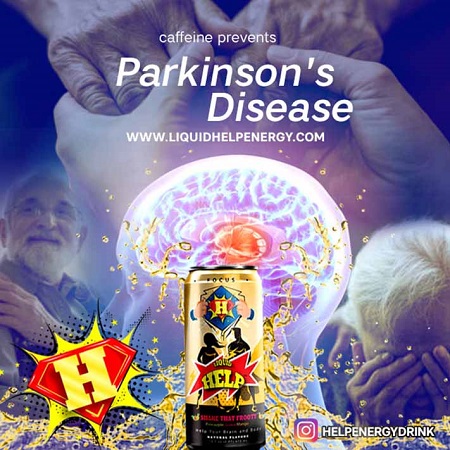
- Dopamine neuron degeneration in substantia nigra
- Acetylcholine surplus in the nucleus basalis of Meynert
- The relationship between coffee or tea and the risk of Parkinson’s disease has been described in several studies in hospital settings under the peer review of Medical Doctors. Under normal conditions, dopamine and acetylcholine are in electrochemical balance in the basal ganglia. A meta-analysis found evidence of a dose-response relationship between coffee or tea intake and decreased risk for Parkinson’s disease.
- Caffeine enhances dopamine signaling in the brain, as well as dopamine neuronal loss. The re-uptake in the pre-synaptic neurons is more effective with caffeine usage.
- This apparent protective effect is not observed in women taking postmenopausal hormone therapy, in whom caffeine seems to increase the risk for Parkinson’s disease, suggesting interactions between coffee and hormone use.
Caffeine intake results in improved alertness, mental energy, and the potential to concentrate, especially when people are fatigued or running at night. The lethargy is probably the essential reason why so many humans regularly devour caffeine. Caffeine mitigates the unfavorable results of sleep deprivation on a full style of cognitive functions. A systematic evaluation of thirteen randomized trials of persons with jet lag or shift paintings sickness determined that caffeine substantially improved idea formation, reasoning, reminiscence, orientation, interest, and perception compared with placebo. Caffeine is higher than a placebo in stopping errors and changed into also powerful as compared to different active interventions such as the use of modafinil (that is a Central Nervous System Stimulant medicinal drug) or brilliant light.
Sean Kaptaine owner of Liquid Help and Medical school graduate, investigated the question in a hospital setting under other medical students and medical residents, with attending present and found. Caffeine has proven to impact cognizance and temperament, both intensely and incessantly. Its belongings, nonetheless, shift contingent upon the investigation populace and the sum and span of caffeine devoured. In rested people, caffeine in low and moderate dosages, roughly 30 to 300 mg, improves cautiousness and response time. In restless people, caffeine’s constructive outcomes sum up to a wide assortment of capacities, including learning and dynamic and authentic exercises, such as car and airplane activity. People who are ongoing buyers of espresso and tea perform better on the different trials of psychological execution, such as response time and visuospatial thinking.
Medical Board-Certified Studies, from the owner of Help energy drink
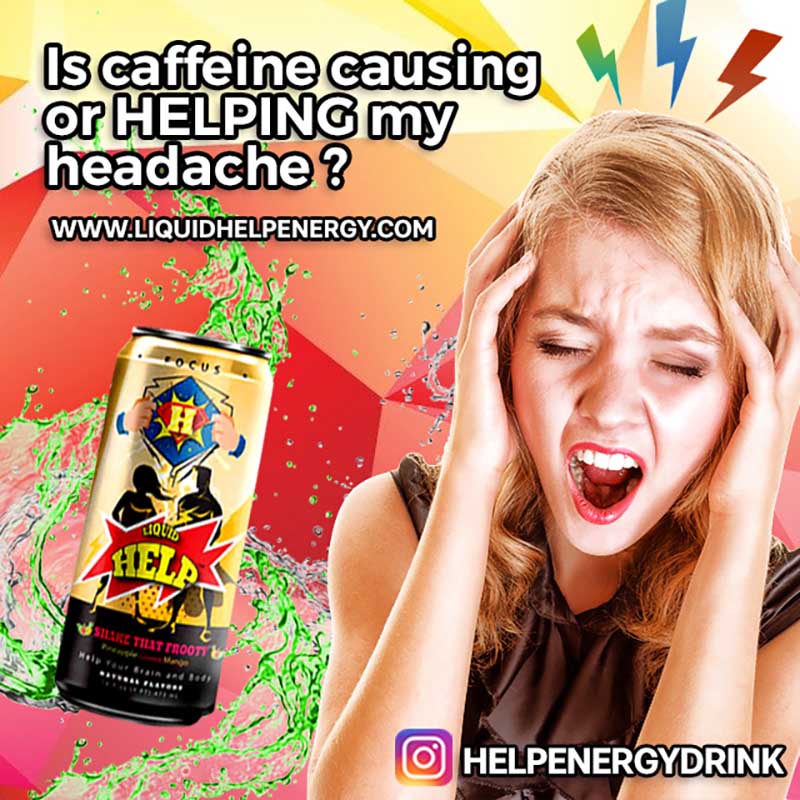
Help Headache Caffeine
-
- Routine caffeine utilization is related to constant headache and pain-relieving bounce back cerebral pain. For a situation control study, patients with everyday caffeine utilization were bound to have interminable headaches and pain-relieving bounce back migraines than patients who did not consistently expend caffeine. It is important to hydrate while consuming caffeine. A dehydrated person, on average, can only absorb 10 ounces of water every 20 minutes. Overconsuming water can lead to water intoxication, which dilutes one’s plasma in one’s blood, leading to various issues.
People Asked About Migraine Headaches and Caffeine
-
- Migraines are most commonly present with a unilateral headache—4-72 hours of pulsating pain. Sometimes nausea, photophobia, or phonophobia can occur. A +/- aura of neurological symptoms before the headache, including visual, sensory, speech disturbances, can occur. Migraines happen due to irritation of cranial nerve five and release of substance P, CGRP, vasoactive peptides.
- Other common triggers of migraines are drinking wine and other food sensitivities, oral contraceptives, fasting diet, stress, menses, and bright light. Contraindication in treated migraine patients is oral contraceptives.
- Non-Pharmacological prophylaxis treatment is sleeping, darkroom, an ice pack on the head, decrease caffeine consumption per day, hydrate more, exercise, sweat to release more caffeine molecules.
People Asked About How Long Does Caffeine Last
-
- Caffeine half-life is about five hours plus or minus depending on the liver’s metabolism of the individual. It takes four half-lives to get out of one’s system. So, four half-lives would be twenty hours. However, the amount of caffeine in one’s system at two half-lives is usually a negligible amount to cause insomnia.
People Asked About Tension Headaches and Caffeine
-
- Tension headaches are the number one cause of headaches for adults. Tension headaches present with bilateral head pain, like a band squeezing the head. This headache typically lasts greater than thirty minutes with steady pain. Think of a thirty-year-old female who had a headache at the end of the day that worsens with stress and improves with relaxation and massage.
- Tension headache first line in treatment is Excedrin, which is an NSAID made with caffeine.
People Asked About Caffeine Withdrwawl
- Caffeine can cause direct vasoconstriction of blood vessels in the brain. However, one can get rebound vasodilation producing a rebound headache upon acute withdrawal of caffeine.
This message is from the owner of Help energy drink, educated in medicine. This information is not mainstream media like CNN, FOX, or some blog. However, many other associations can contribute to headaches, but we would be here for years discussing the possibilities. Stay updated on more medicine on Help Energy Drink’s youtube channel or Instagram.
Caffeine utilization is related to a diminished hazard for cirrhosis. In a meta-investigation including 16 observational examinations in the hospital, contrasted and nondrinkers, espresso consumers were more averse to create cirrhosis. Upon clinical research, ordinary caffeine utilization was connected with a lower pace of illness movement in patients with chronic hepatitis C.
Frequently Asked Questions
(All information is from Medical Drs in hospital settings used by medical students & residents)
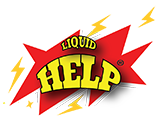
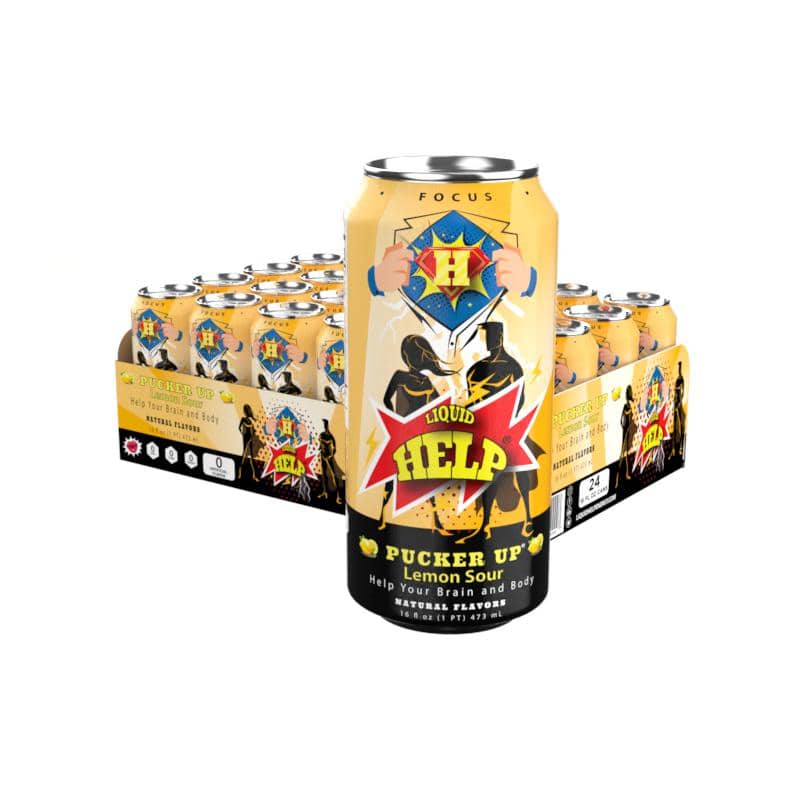
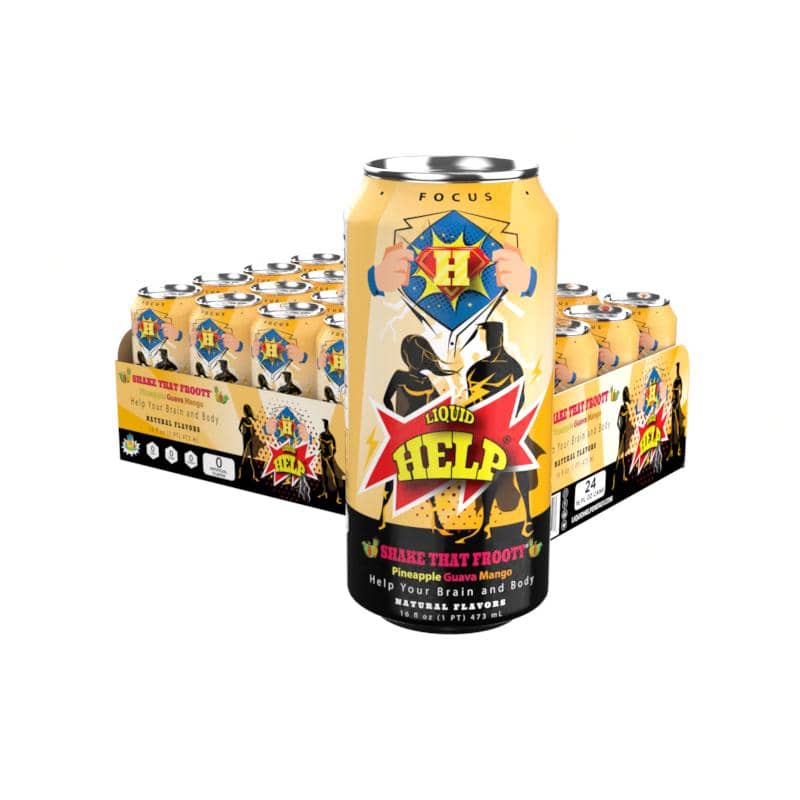
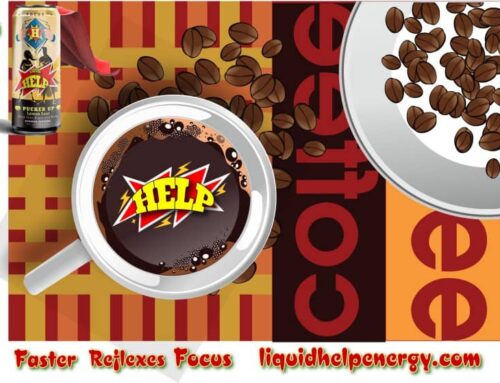


Leave A Comment